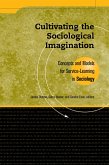Ward et al., examine the question of whether providing work experience within courses of study in higher education affects entrepreneurial attitudes and behaviour, important given government imperatives to foster entrepreneurship through the education system. They consider two dimensions: self-efficacy, which broadly relates to confidence in ability; and, entrepreneurial intent which relates to positive attitudes towards engaging in risk taking or firm start-up. Their sample is of 158 undergraduates who engaged in a summer work placement linked to their study. Their key finding is that positive effects on self-efficacy and entrepreneurial intent depends on the nature of the experience, being fostered by performing well in the face of difficulty and the closeness of the placement activity to their studies. Such experience appears more common when undertaking a placement in a small firm. Van der Sijde et al., consider the extent to which University start ups which are global as opposed to being domestically focussed differ in the extent of their business networks, using a sample comprising five technology-based firms of each type. They establish that global start-ups do have more extensive networks in terms of number of actors and global actors in the network at start-up, although their networks do not expand thereafter significantly more than domestic start-ups. They also have significantly more sources of capital.
Dieser Download kann aus rechtlichen Gründen nur mit Rechnungsadresse in A, B, BG, CY, CZ, D, DK, EW, E, FIN, F, GR, HR, H, IRL, I, LT, L, LR, M, NL, PL, P, R, S, SLO, SK ausgeliefert werden.









